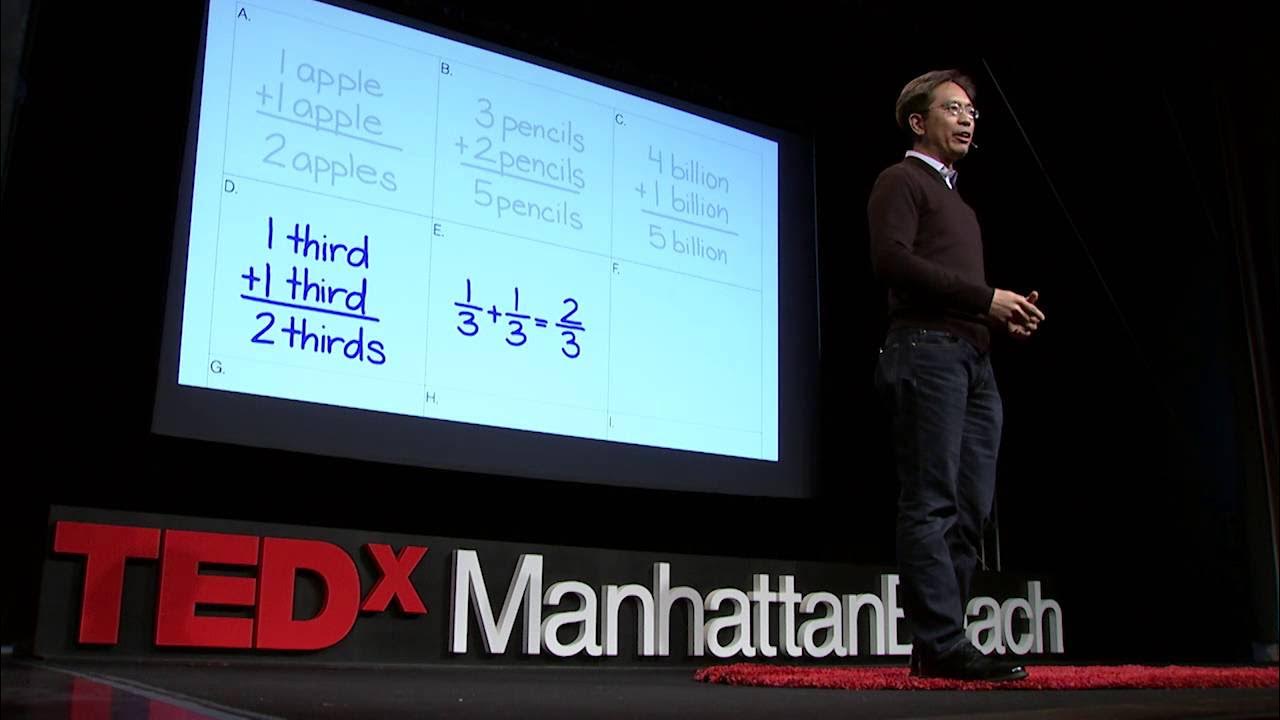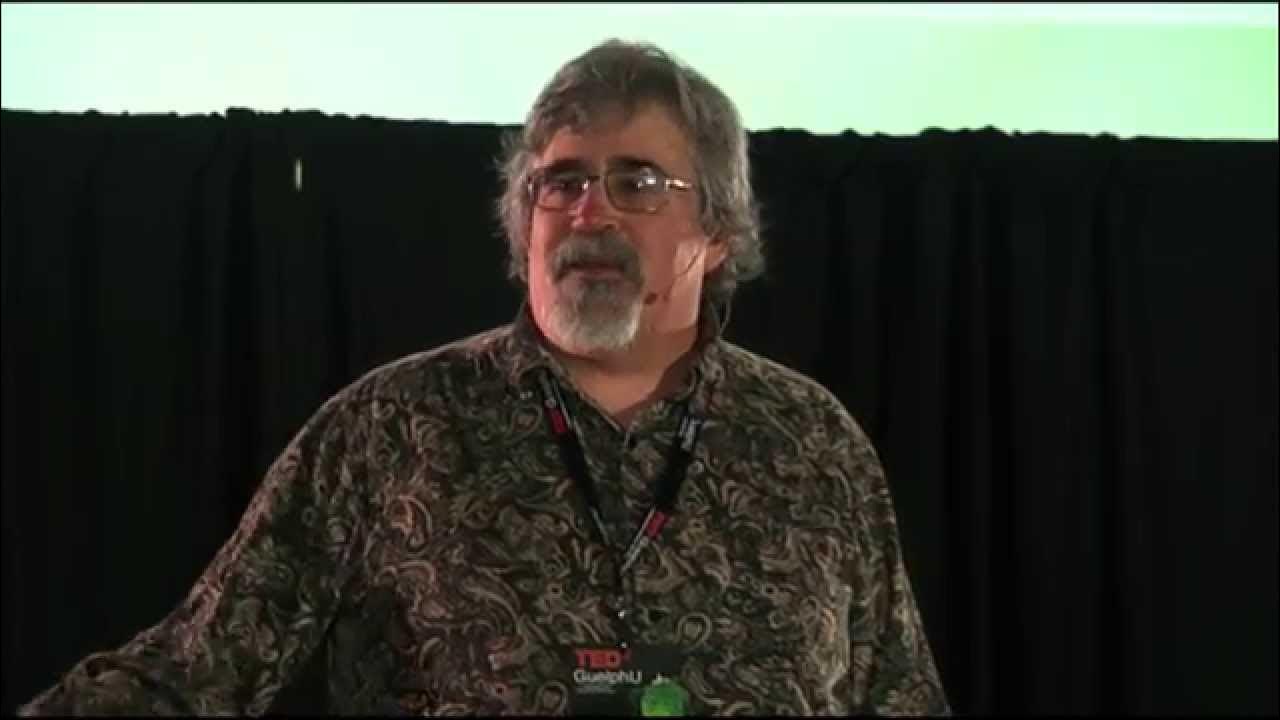Why is algebra so hard? | Emmanuel Schanzer | TEDxBeaconStreet
TLDRThe speaker shares a personal journey of teaching and learning, highlighting the importance of algebra as a foundational subject for all STEM fields. They discuss the challenges students face in understanding algebra due to its abstract nature and the shift from arithmetic to algebraic thinking. The speaker suggests that programming can be a tool to make algebra more tangible and engaging for students. They introduce the Bootstrap project, a curricular module that uses a mathematical programming language to teach algebra, which has shown success in improving math performance and engagement among students, including a diverse group. The talk concludes with a call to integrate computer science into math education to achieve universal computer science education more efficiently and inclusively.
Takeaways
- 🤔 The speaker emphasizes the importance of making algebra relevant to students by integrating it with real-world applications.
- 💡 The idea of universal computer science education is presented, suggesting that if done correctly, it could settle questions students have about the practical use of algebra.
- 📚 Algebra is identified as a gateway to all STEM fields, highlighting its necessity not just for mathematics but for physics, chemistry, biology, economics, and more.
- 💰 A correlation is mentioned between high school algebra grades and future earnings, indicating the significance of algebra in a student's long-term financial success.
- 📉 The speaker discusses the challenges of teaching algebra, noting that it's the first time math involves abstract concepts like functions, which can be confusing for students.
- 👶 An experiment is described to illustrate how math is often taught as a process of computation, which contrasts with the abstract nature of algebra.
- 💡 The potential of programming to help students understand algebra is explored, with the speaker's background in programming leading to the development of a Bootstrap curricular module.
- 🚫 The speaker points out that many popular programming languages used in schools do not effectively teach mathematical concepts due to differences in how numbers, variables, and functions are handled.
- 🔄 The Bootstrap module uses a programming language that aligns with mathematical principles, aiming to make algebra more tangible and engaging for students.
- 🌟 The Bootstrap program has achieved significant scale and diversity, serving over 15,000 students annually, with a notable percentage of female and minority students.
- 🔄 The integration of computer science within the existing math curriculum is proposed as a solution to provide computer science education to all students without additional costs or resources.
Q & A
What is the main issue the speaker is addressing in the transcript?
-The speaker is addressing the issue of making algebra more engaging and relevant for students by integrating computer science education into the curriculum.
Why is algebra considered a 'must-have' in education according to the speaker?
-Algebra is considered a 'must-have' because it is the gateway to all STEM fields, necessary for modeling in physics, balancing chemical equations in chemistry, and understanding compound interest in economics and finance.
What correlation did the study mentioned in the transcript find between high school grades and future earnings?
-The study found that the grade a student receives in their first year of algebra is the most strongly correlated with the amount of money that child will make for the rest of their life.
Why did the speaker initially go to work in the private sector after college?
-The speaker initially went to work in the private sector with the plan to make millions and then pursue a passion for education.
What was the speaker's realization about the role of computer science in schools?
-The speaker realized that while computer science is considered 'nice to have', algebra is seen as a necessity in many schools, and thus teaching algebra became a more immediate need.
What is the Bootstrap program mentioned in the transcript?
-Bootstrap is a curricular module that uses a mathematical programming language to teach algebra and other mathematical concepts in a more engaging way, allowing students to build their own video games using pure algebra.
What is the speaker's argument against using common programming languages for teaching math?
-The speaker argues that common programming languages used in schools often do not align with mathematical concepts, such as how numbers, variables, and functions operate, which can be confusing for students learning math.
What is the speaker's solution to the problem of integrating computer science into the curriculum without adding to the school day's schedule?
-The speaker suggests integrating parts of computer science that can be part of math, thus leveraging the existing resources and teachers to provide computer science education without adding to the school day's schedule.
What is the current scale of the Bootstrap program?
-The Bootstrap program currently serves more than 15,000 students every year.
How does the Bootstrap program address diversity among students?
-The program has a diverse student body with more than 43% being girls and young women, and more than 46% being African American or Latino, taught primarily by math teachers with no computing background.
What is the speaker's vision for the future of algebra and computer science education?
-The speaker envisions a future where algebra is made truly real for all students by integrating computer science into the curriculum, thus achieving universal computer science education without additional costs or time.
What is the significance of the speaker's research in the context of high-stakes testing and standardized tests?
-The speaker's research is significant because it addresses the part of math tests, specifically algebra and word problems, that are crucial for the U.S. not to fall behind other countries in educational standards.
Outlines
😀 The Importance of Algebra and Computer Science Education
The speaker begins by addressing the common question students have about the real-world application of algebra. They propose a solution to make algebra more relevant by integrating it with computer science education, which they believe could lead to universal computer science education in America. The speaker shares their personal journey from being a student who didn't fully understand math to becoming a teacher and eventually focusing on the importance of algebra in STEM fields. They discuss how algebra is a gateway to all STEM subjects and is closely tied to future earnings and success in high-stakes math tests, which are critical for America's competitiveness.
🤔 The Challenge of Teaching Algebra and the Role of Programming
The speaker delves into why algebra is so challenging for students, explaining that it's the first time math becomes about abstract concepts like functions rather than just a process. They argue that traditional programming languages used in schools don't effectively teach mathematical functions, which is a critical aspect of algebra. The speaker introduces the idea of using a programming language that is more aligned with mathematical concepts to help students understand algebra better. They discuss the 'Bootstrap' curricular module, which uses a mathematical programming language to teach algebra and includes a comprehensive curriculum, pedagogy, and a project where students design their video game using algebra.
👥 Achieving Diversity and Accessibility in Computer Science Education
The speaker highlights the issue of equity in computer science education, pointing out that after-school coding clubs tend to be attended by a non-representative demographic. They argue for the necessity of making computer science education available to all students. The speaker outlines the challenges in achieving this, including the need for a computer science teacher certification in all states, recruiting and training a large number of computer science teachers, and finding a place for these classes within an already packed school curriculum. They propose a radical idea of integrating parts of computer science that can be taught as math, which would allow leveraging existing resources and teachers to achieve 'CS for all' more quickly and at a lower cost. The speaker concludes by sharing the success of the Bootstrap project in reaching a diverse group of over 15,000 students annually, with a significant percentage being girls and young women, and students of color, demonstrating that with the right approach, algebra and computer science education can be made accessible and engaging for all students.
Mindmap
Keywords
💡Algebra
💡Computer Science Education
💡STEM Fields
💡High-Stakes Testing
💡Abstract Objects
💡Programming
💡Bootstrap
💡CS for All
💡Equity and Poverty
💡Curricular Integration
💡Diversity in Education
Highlights
The speaker aims to make algebra more relatable and real for students, potentially leading to universal computer science education.
Algebra is identified as a gateway to all STEM fields, crucial for modeling in physics, chemistry, biology, and finance.
High school algebra grades are strongly correlated with future earnings, impacting equity and poverty.
Standardized tests, particularly in algebra, are a point of concern as they reflect America's standing in global education.
The challenge with algebra is the shift from computational processes to abstract thinking about functions.
Programming can be a tool to help students think about functions in a new way.
Many current programming languages used in schools do not strongly correlate with mathematical functions.
Bootstrap is introduced as a curricular module using a mathematical programming language to teach algebra.
Bootstrap aligns with standard mathematics and includes a comprehensive curriculum and pedagogy.
Students using Bootstrap showed better performance in standard algebra tasks and increased engagement.
Bootstrap serves over 15,000 students annually with a significant focus on diversity.
More than 43% of Bootstrap students are girls and young women, and over 46% are African American or Latino.
The integration of computer science into math classes can lead to a more efficient and cost-effective approach to education.
The speaker proposes leveraging existing math teachers and resources to achieve computer science education for all.
Bootstrap's success demonstrates that algebra and computer science can be mutually beneficial rather than competing for resources.
The approach can make algebra engaging by applying mathematical concepts to build a video game, thus making it 'truly real' for students.
The speaker emphasizes the importance of a systemic approach to solving educational challenges, rather than piecemeal interventions.
The ultimate goal is to provide both a solid foundation in algebra and computer science to all students, regardless of background.
Transcripts
Browse More Related Video

Math isn't hard, it's a language | Randy Palisoc | TEDxManhattanBeach

Why teach calculus?: Daniel Ashlock at TEDxGuelphU

Algebra vs. Calculus – What’s The Difference?

What Math Classes are Hard for Math Majors

Physics Vs Math - How to Pick the Right Major

Gilbert Strang: Linear Algebra, Teaching, and MIT OpenCourseWare | Lex Fridman Podcast #52
5.0 / 5 (0 votes)
Thanks for rating: